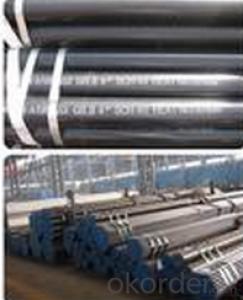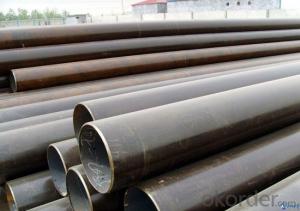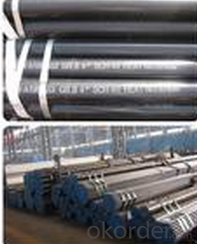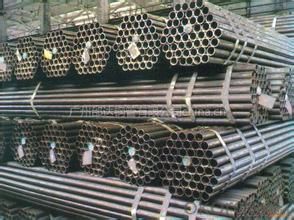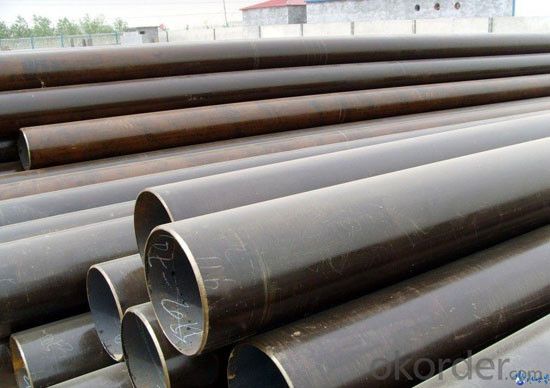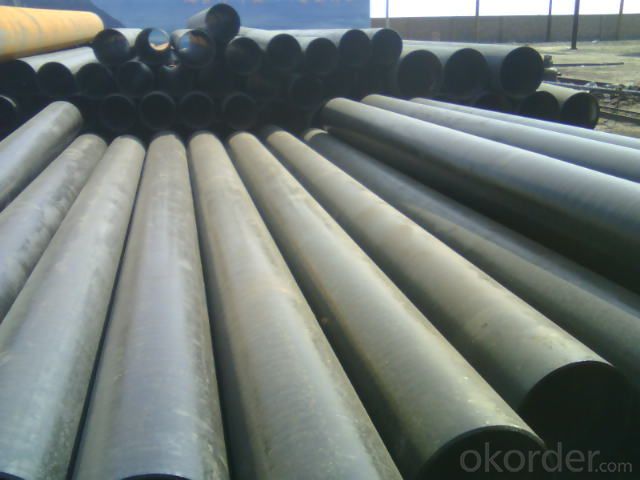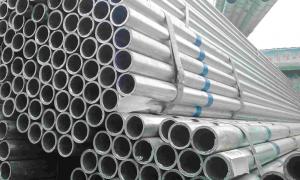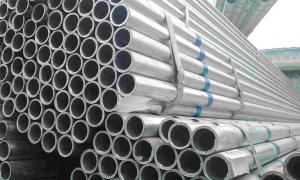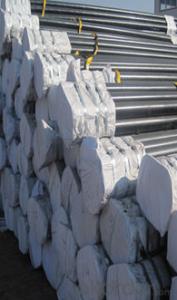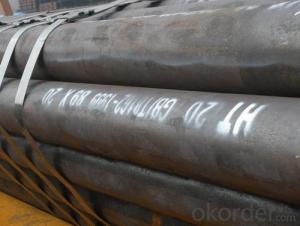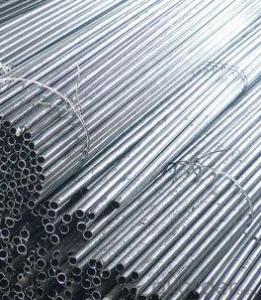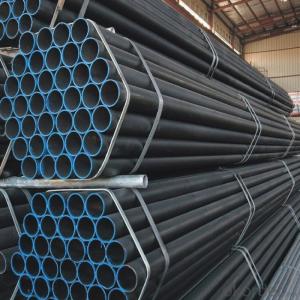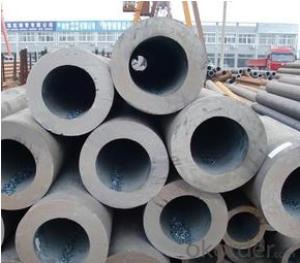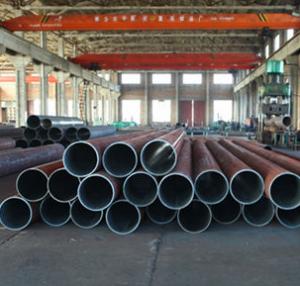Steel pipe for carbon seamless ,,API P110, cnbm
- Loading Port:
- Qingdao
- Payment Terms:
- TT OR LC
- Min Order Qty:
- 10 pc
- Supply Capability:
- 30 pc/month
OKorder Service Pledge
OKorder Financial Service
You Might Also Like
Quick Details
Thickness: 6 - 50 mm Section
Shape: Round,r
Outer Diameter: 33 - 600 mm
Secondary Or Not: Non-secondary
Application: Fluid Pipe
Technique: Hot Rolled,Hot Rolled,Cold Drawn,Hot Expanded Certification: API Surface Treatment: Beveled end or plain end or varnished as per buyer
Special Pipe: API Pipe Alloy Or Not: Non-alloy
Brand Name: XPY(Xinpengyuan)
Length: 6-12m or according to clients' requirements
Standard: BS 3059-2,JIS G3454-2007,GB 5310-1995,GB 3087-1999,GB/T 8163-1999,GB/T 8162-1999,GB 6479-2000,DIN 1629/3,DIN 2448,ASTM A106-2006,ASTM A53-2007,API 5CT,API 5L,BS,JIS,GB,DIN,ASTM,API
Certification & Standard | SGS & AISI |
Type | Cold Rolled |
Thickness | 0.14mm ~ 1.5mm |
Width | 10mm ~ 1240mm |
Length | As customers' requirements |
Surface finish | NO.2B/ NO.3/ NO.4/ HL/ 8K/ BA |
Chemical Composition (MT)% | (C) :≤0.12% (Si) :≤0.75% (Mn) :≤1.00% (P) :≤0.040% (S) :≤0.030% (Ni) :≤0.60%(Available to contain) (Cr) :16.00~18.00% |
Advantage | Good flexibility, Resistant to corrosion, Thermal Conductivity and lower thermal expansion. |
Application | l Be uesd in manufacturing kitchen ware field. l Auto exhaust parts, Heat exchanger, Washing machinery. l Interior/ Exterior decoration for building l Household Appliances or Appliance components. |
Market | Southeast Aisa, Mid East, Africa, Estern Aisa, Western Europe ,etc. |
Packing | Bundle package, Wooden case, Container or bulk, etc in export standard ;or as customers'requests |
- Q: What is the difference between API 5L and ASTM A53 steel pipes?
- API 5L and ASTM A53 are widely utilized carbon steel pipe standards with similar purposes but notable distinctions. 1. In terms of scope, API 5L pertains to seamless and welded pipes for transporting oil, gas, water, and other fluids. It encompasses plain-end, threaded-end, and belled-end pipe types. Conversely, ASTM A53 is a standard specification for seamless and welded black and hot-dipped galvanized steel pipes utilized in mechanical and pressure applications. 2. The manufacturing processes differ, as API 5L pipes undergo hot-rolling, while ASTM A53 pipes undergo either hot-rolling or cold-drawing. This variance affects the chemical composition and mechanical properties of the pipes. 3. Generally, API 5L pipes have a higher carbon content compared to ASTM A53 pipes. This discrepancy arises from the intended use of API 5L pipes for conveying oil, gas, and water, necessitating greater strength and durability. On the other hand, ASTM A53 pipes cater to mechanical and pressure applications, where lower carbon content is deemed appropriate. 4. API 5L pipes exhibit higher minimum yield strength and tensile strength than ASTM A53 pipes. This outcome stems from the increased carbon content and more stringent manufacturing process employed for API 5L pipes. Conversely, ASTM A53 pipes possess lower yield and tensile strength requirements, rendering them more suitable for general-purpose applications. 5. API 5L pipes offer various coating options, including black varnish, 3PE, FBE, among others, depending on the specific application requirements. In contrast, ASTM A53 pipes are typically hot-dipped galvanized to enhance corrosion resistance. In conclusion, API 5L and ASTM A53 steel pipes differ in scope, manufacturing processes, chemical compositions, mechanical properties, and coating options. The appropriate choice of pipe hinges upon specific application requirements, such as the nature of the conveyed fluid, operating conditions, and desired strength and durability.
- Q: How do you repair damaged steel pipes?
- To repair damaged steel pipes, the first step is to assess the extent of the damage. If it's a small crack or hole, it can be fixed using a steel-filled epoxy or a pipe repair clamp. However, for more significant damage, such as extensive corrosion or a large rupture, cutting out the damaged section and replacing it with a new pipe is usually necessary. In some cases, professional welding or soldering may be required to ensure a secure and leak-proof repair.
- Q: How are steel pipes used in wastewater treatment?
- Steel pipes are an essential component in the wastewater treatment process. They are used to transport and distribute wastewater from various sources to the treatment facilities. Steel pipes are chosen for this purpose due to their durability, strength, and resistance to corrosion. In wastewater treatment plants, steel pipes are commonly used for multiple applications. Firstly, they are used for the intake of raw wastewater. These pipes are typically large in diameter to accommodate the high flow rate of incoming wastewater. Steel pipes are ideal for this purpose as they can withstand the pressure and turbulence of the wastewater flow. Once inside the treatment facility, steel pipes are used to transport the wastewater to different treatment processes. They connect various units such as screens, grit chambers, sedimentation tanks, and biological reactors. Steel pipes are preferred in these applications due to their ability to handle the corrosive elements present in wastewater, such as chemicals, acids, and gases. Additionally, their durability ensures a long service life, reducing maintenance and replacement costs. Steel pipes are also utilized in the wastewater treatment process for the distribution of treated water. After the wastewater is treated, it undergoes disinfection and other processes to remove harmful contaminants. The treated water is then distributed through steel pipes to be reused for irrigation, industrial processes, or discharged back into water bodies. Furthermore, steel pipes are employed in the construction of wastewater treatment infrastructure. They are used in the installation of underground sewer lines, pumping stations, and manholes. Steel pipes provide the necessary strength and stability to withstand the weight of the soil and other external forces. In summary, steel pipes play a vital role in wastewater treatment by transporting and distributing wastewater, connecting different treatment units, and distributing treated water. Their durability, resistance to corrosion, and ability to handle high-pressure flows make them an ideal choice for this demanding application.
- Q: Can steel pipes be used for water distribution networks?
- Yes, steel pipes can be used for water distribution networks. Steel pipes are commonly used for water distribution due to their durability, strength, and resistance to corrosion. They can handle high pressure and are able to withstand extreme weather conditions, making them suitable for long-term use in water distribution networks.
- Q: What is the purpose of pipe flanges in steel pipes?
- The purpose of pipe flanges in steel pipes is to provide a secure and leak-proof connection between two pipes or to other equipment, such as valves or pumps. Flanges allow for easy assembly and disassembly of pipe sections, as well as providing a means for maintenance and repairs. Additionally, they provide a stronger connection, ensuring the integrity and stability of the pipeline system.
- Q: How are steel pipes used in the manufacturing of chemical storage tanks?
- Steel pipes are used in the manufacturing of chemical storage tanks for their durability, strength, and resistance to corrosion. These pipes are utilized for the construction of the tank's framework, as well as for the transport of chemicals within the tank. The steel pipes provide a reliable and secure infrastructure, ensuring the safety and integrity of the chemicals stored inside the tank.
- Q: What is the role of steel pipes in HVAC systems?
- Steel pipes are crucial components in HVAC systems as they are used to transport hot and cold water throughout the system. They provide a durable and reliable means of distributing heat or cooling energy to various parts of a building. Steel pipes are known for their high strength and resistance to corrosion, making them an ideal choice for HVAC applications.
- Q: What is the difference between steel pipe and round steel?
- Widely used in the manufacture of structural and mechanical parts, such as oil drilling pipe, automobile transmission shaft, bicycle frame and steel scaffolding used in construction. Making ring parts with steel tubes can improve data application rate, simplify manufacturing process, save data and work hours, such as rolling bearings, rings, Jack sleeves, etc., and have been widely used in steel pipe manufacture.
- Q: Can steel pipes be used for conveying abrasive slurries?
- Yes, steel pipes can be used for conveying abrasive slurries. Steel pipes are known for their durability and strength, making them suitable for handling abrasive materials such as slurries. However, to ensure longevity and prevent excessive wear, it is important to select the appropriate grade of steel and consider factors such as pipe thickness, lining options, and flow velocity. Additionally, implementing proper maintenance and inspection procedures can help to detect and address any wear or corrosion that may occur over time.
- Q: Are steel pipes suitable for use in mining applications?
- Yes, steel pipes are suitable for use in mining applications. Steel pipes are known for their high durability, strength, and resistance to corrosion, making them ideal for mining operations where they may be exposed to harsh conditions such as abrasive materials, high pressure, and extreme temperatures. Additionally, steel pipes can be easily welded and customized to meet specific mining requirements, making them a reliable choice for transporting fluids, gases, and materials in mining operations.
Send your message to us
Steel pipe for carbon seamless ,,API P110, cnbm
- Loading Port:
- Qingdao
- Payment Terms:
- TT OR LC
- Min Order Qty:
- 10 pc
- Supply Capability:
- 30 pc/month
OKorder Service Pledge
OKorder Financial Service
Similar products
Hot products
Hot Searches
Related keywords
